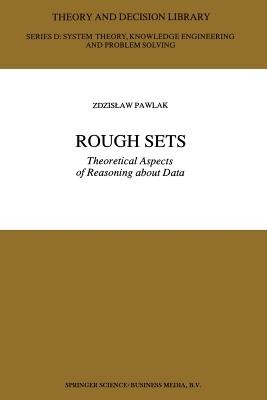| Rough Sets: Theoretical Aspects of Reasoning about Data Softcover Repri Edition Contributor(s): Pawlak, Z. (Author) |
|
 |
ISBN: 9401055645 ISBN-13: 9789401055642 Publisher: Springer OUR PRICE: $427.49 Product Type: Paperback - Other Formats Published: October 2012 |
| Additional Information |
| BISAC Categories: - Computers | Intelligence (ai) & Semantics - Mathematics | Logic - Business & Economics | Operations Research |
| Dewey: 006.3 |
| Series: Theory and Decision Library D: |
| Physical Information: 0.53" H x 6.14" W x 9.21" (0.79 lbs) 231 pages |
| Descriptions, Reviews, Etc. |
| Publisher Description: To-date computers are supposed to store and exploit knowledge. At least that is one of the aims of research fields such as Artificial Intelligence and Information Systems. However, the problem is to understand what knowledge means, to find ways of representing knowledge, and to specify automated machineries that can extract useful information from stored knowledge. Knowledge is something people have in their mind, and which they can express through natural language. Knowl- edge is acquired not only from books, but also from observations made during experiments; in other words, from data. Changing data into knowledge is not a straightforward task. A set of data is generally disorganized, contains useless details, although it can be incomplete. Knowledge is just the opposite: organized (e.g. laying bare dependencies, or classifications), but expressed by means of a poorer language, i.e. pervaded by imprecision or even vagueness, and assuming a level of granularity. One may say that knowledge is summarized and organized data - at least the kind of knowledge that computers can store. |